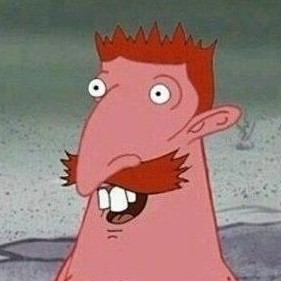Under US copyright law, only works created by humans can be copyrighted. Courts have (imho rightly) denied copyrights to AI-generated images.
My question is when do you think AI image tools cross from the realm of a “tool” (that, for example generates and fills in a background so an item can be removed from a photo) into the realm of “a human didn’t make this”?
What if an artist trains an AI so specialized it only makes their style of art? At what point do you think the images they create with it begin to count as their “work product”?
Under the current interpretation of the law, you have to make modifications to the ai generated image in order to retain some form of copyright over it.
This would be an ideal test case for the law. If an artist uses a computer as a tool in the creation of a work, then they retain copyright. Consider a 3D animation. The artist does not manually and with intent create the highlights, shadows, and (often) textures, etc. They are emergent properties of the way the computer generates the image based on the artist’s inputs.
Lots of fine artists use computer generated elements, such as 3d printed patterns, photo collages, iterative designs, etc.
It seems that the legal question would be whether generative images are categorically distinct from other types of computer aided creation. It’s hard to imagine an argument that an artist created the data, wrote a program to use the data to train a model, used the model to generate an image, created some type of prompt, and published the output… but doesn’t own the output. It would be an interesting argument anyway.
It would be an interesting argument anyway.
“Your honor, my AI generator contains my original work!”
- So you yourself have programmed and created some parts of this generator? How much of it is originally from you?
“Your honor, about 0.0000001%”
Are you talking about an artist exclusively running their images through an AI model until it is capable of regenerating images that look like it was created by them and have some semblance of intent?
In order to get anything that looks remotely like what people want, I’m pretty sure they would have to upload millions of pictures of their own creation first. So most people just layer their images on top of the giant mash of ethically sketchy data that already was there.
Ahh, interesting. I almost admitted to not knowing that when I posted haha - I’m not hugely familiar with how image ai works, wasn’t sure it would be possible for one person to produce enough training material under current tech.
Interesting to think about it as a hypothetical, though.
I’m pretty sure they would have to upload millions of pictures of their own creation first.
From the YouTube guides in generating your own Lora models… Naa just a couple reference poses and it’s ready to go.
LoRA models still have the underlying fully trained base model underneath; it is not a complete replacement or complete modification of the model weights.
What @[email protected] said, Sorry my original post was not so clear.
I based my answer on the assumption that you would not be using somebody else’s art to train an AI. The Lora models are already brimming full of other people’s art.
Probably not. After all, it can be justified by saying that the AI got the inspiration from the artist’s drawings.
You can’t get a copyright on an AI-generated image, but if the AI-generated image was done in the style of a certain work, it could be considered a derivative work.
Under US copyright law, only works created by humans can be copyrighted.
True.
What if an artist trains an AI so specialized it only makes their style of art?
What the AI creates, is created by the AI. So: see above. The works are free from copyright.
The only thing that maybe, arguably remains is the “style” itself, since you said that the style was created by that artist (and is unique).
I don’t know if “style” is also a thing that can be copyrighted by itself.
I’m a bit confused. If I use AI to generate an image, then modify it, can I claim copyright? And how would anyone know if I used an AI? I know there are telltale signs that computer algorithms were involved, so I guess the question is how much does the artist have to contribute before it’s no longer considered non-human art? Or does any use of AI tools invalidate the copyright?
Yeah that’s exactly what I’m getting at - when does a tool stop being a tool and start being a non-human creator? It’ll be interesting to see how courts suss it out…
Yes, AI contribution is an area that needs legal clarification. I know you brought the question up for graphic arts, but the same thing is happening with music. I can use an AI tool to generate tracks, tweak them to my taste, then supply lyrics that are also at least partially generated by AI. But if I never admit that I used AI, it’s probably impossible to detect.
What makes this really interesting is that entertainment industry workers went on strike partly because of AI fears, yet would the resulting productions be copyrightable?
OP, please reword your post to be an open-ended question.
No
Let’s not start down that road. Just make anything by an AI uncopyrightable then some asshole supreme court judge that likes free RVs can’t fuck us all.
This is already the case because there’s legal precedent.
It depends on the net worth of the artist.
Definitely not
No, the artist didn’t make it
What if the artist made both the AI, and the art that it trained on?
Still no. They didn’t actually draw it







